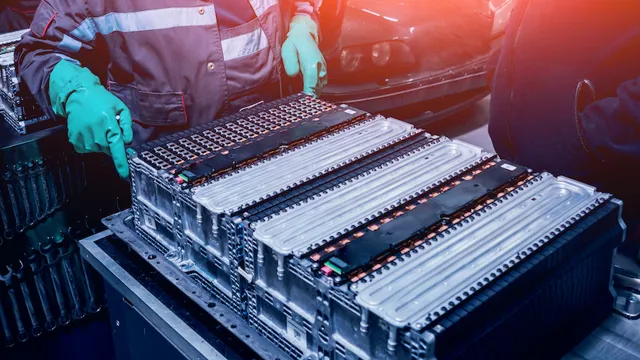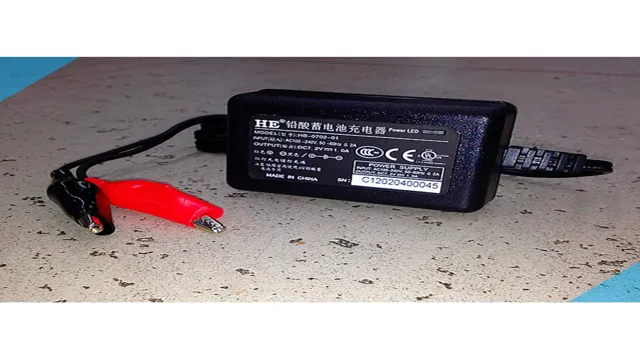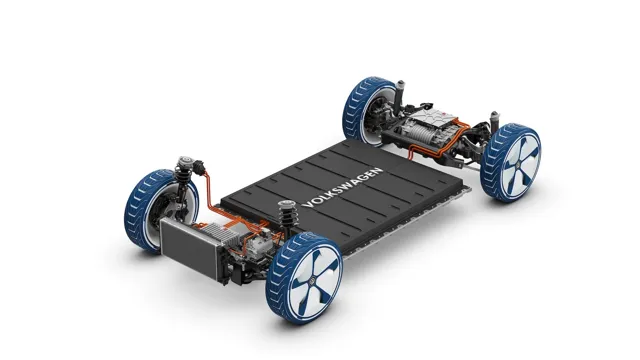Powering Your EV: The Top Electric Battery Solutions for Maximum Performance
Buckle up folks because we’re taking a deep dive into the evolution of EV batteries! As electric vehicles have rapidly grown in popularity over the last few years, the technologies behind the batteries that power them have also advanced in leaps and bounds. From the early days of nickel-cadmium batteries to the current lithium-ion powerhouses, EV batteries have come a long way in terms of performance, capacity, and cost-effectiveness. The constant push to improve EV batteries has paved the way for a cleaner, more sustainable future in transportation.
In this blog post, we’ll explore the changes and innovations that have led to the current state of EV battery technology. So, grab your charging cables and let’s get started!
Types of EV Battery Technologies
Electric batteries for EV cars come in different types, each with their own set of strengths and weaknesses. Lithium-ion batteries are the most common and widely used technology due to their high energy density and long lifespan. They are also flexible in terms of design, making them suitable for different types of EVs.
On the other hand, nickel-metal hydride (NiMH) batteries are less expensive than lithium-ion batteries, but have a lower energy density and shorter lifespan. Zinc-air batteries are still at the experimental stage, but they hold great promise due to their potentially low cost, high energy density, and long cycle life. However, they also have some challenges such as air management and safety.
Solid-state batteries, which use a solid electrolyte instead of a liquid, also hold promise due to their high energy density and safety, but they are still in the research and development phase. Ultimately, the choice of EV battery technology will depend on several factors, including cost, energy density, lifespan, and safety.
Lithium-Ion Batteries
Lithium-Ion Batteries When it comes to electric vehicle (EV) battery technologies, there are a few different options available. One of the most common and widely used types of batteries is the lithium-ion battery. They’re known for being lightweight, energy-dense, and long-lasting, making them a great choice for powering cars and other energy-hungry applications.
Unlike traditional lead-acid batteries, which are commonly used in gas-powered vehicles, lithium-ion batteries don’t require as much maintenance and can withstand much deeper discharge cycles. This means that they can be recharged more quickly and efficiently, and the battery pack as a whole can last for thousands of cycles before needing to be replaced. There are a few different variations of lithium-ion batteries, with some using different chemical compositions that offer slightly different characteristics.
For example, some battery manufacturers use a mix of cobalt, nickel, and manganese to create a battery with a high energy density, while others might use a mix of iron and phosphate for a more durable, long-lasting battery. Ultimately, though, all lithium-ion batteries work in a similar way, with lithium ions moving back and forth between two electrodes to store and release energy. Despite their many benefits, there are still some downsides to lithium-ion batteries that need to be addressed.
For one thing, they can be somewhat expensive upfront, though this cost is likely to come down as production scales up. Additionally, lithium-ion batteries can be somewhat sensitive to extreme temperatures, which can cause them to degrade faster than they would at room temperature. Thankfully, battery manufacturers are working hard to overcome these challenges and make lithium-ion batteries an even more attractive option for EVs and other applications in the future.

Solid-State Batteries
Solid-state batteries are an exciting new technology that could revolutionize the electric vehicle industry. Unlike traditional lithium-ion batteries, solid-state batteries use a solid electrolyte instead of a liquid one to transfer ions between the anode and cathode, which means they can operate at higher voltages and temperatures. This results in higher energy density and faster charging times, making them a potential game-changer for electric vehicles.
However, there are still challenges to overcome to make solid-state batteries commercially viable. For example, they can be expensive to manufacture and may have lower cycle life compared to traditional batteries. Nonetheless, several automakers and battery manufacturers are investing heavily in developing this technology.
If successful, solid-state batteries could unlock significant gains in energy density, safety, and charging speed, making electric vehicles even more attractive to consumers.
Flow Batteries
Flow Batteries One of the types of EV battery technologies is flow batteries. Unlike conventional batteries, where the energy is stored inside the battery, flow batteries store the energy in an external tank. Flow batteries use two electrolyte solutions (one positive and one negative), which are stored in separate tanks and pumped through the battery’s cell stack.
The electrolytes flow through the cell stack, where a chemical reaction occurs, generating electricity. The charged electrolytes are then sent back to their respective tanks, where they can be charged and stored until they are needed again. Flow batteries have a longer lifespan and are more environmentally friendly than traditional batteries, and they can be charged and discharged without degrading the battery’s energy storage capacity.
However, they have lower energy and power density than traditional batteries, which makes them less suitable for high-performance applications.
Benefits of EV Batteries
Electric batteries for EV cars have brought about a significant shift in the automotive industry. Not only are they environmentally friendly, but they also offer numerous benefits to drivers. These batteries have a longer lifespan than traditional car batteries, which makes them more efficient and cost-effective.
Additionally, EV battery technology has been advancing rapidly, leading to batteries with higher storage capacities and faster charging times. This means that EVs can travel longer distances without needing to recharge and can charge up more quickly when they do need to top up. Furthermore, electric batteries for EV cars have the potential to reduce greenhouse gas emissions and improve air quality since they produce zero direct emissions.
All these advantages make electric batteries a promising technology for the future of transportation. With increasing demand for sustainable and cost-effective transportation solutions, it is no wonder that EVs are gaining popularity among consumers.
Environmental Advantages
When it comes to the environmental advantages of electric vehicles (EVs), their batteries play a critical role. The primary benefit of EV batteries is that they don’t produce any tailpipe emissions, unlike combustion engines that emit harmful pollutants. This is because EV batteries use electricity from the grid to power the vehicle instead of burning gasoline or diesel fuel.
In addition, EV batteries have the potential to reduce greenhouse gas emissions associated with manufacturing and distributing gasoline. Moreover, a well-designed battery ecosystem could create opportunities for recycling and reusing batteries, which can further reduce environmental waste. Overall, EV batteries are a game-changer in reducing carbon emissions and providing cleaner transportation for future generations.
Cost Savings
Cost savings through EV batteries have been one of the major driving forces behind the growing popularity of electric vehicles. The upfront cost of an electric vehicle may be higher than traditional gasoline cars, but the cost of ownership over the long run is significantly lower. This is largely due to the longevity of EV batteries, which can last for at least a decade.
EV owners also benefit from lower maintenance costs since electric motors have fewer moving parts and require less frequent servicing. Additionally, with the increasing availability of renewable energy sources, charging an EV can be much cheaper than filling up a tank with gasoline. By investing in an electric vehicle and utilizing its battery to its fullest extent, consumers can save more money in the long term while also making a positive impact on the environment.
Maintenance and Performance
One of the biggest benefits of electric vehicle (EV) batteries is their low maintenance requirements. Unlike traditional gasoline-powered cars, EVs don’t need oil changes, tune-ups, or other regular maintenance tasks that keep internal combustion engines running smoothly. That means EV owners can save time and money on maintenance over the lifetime of their vehicle.
What’s more, EV batteries are incredibly reliable and durable, with many manufacturers offering warranties of up to 8 years. This means that drivers can feel confident that their battery will perform consistently and won’t require expensive repairs or replacements. All of these factors make owning an EV battery a smart choice for eco-conscious drivers who want to save money and enjoy reliable performance on the road.
Charging EV Batteries
Electric batteries for EV cars require regular charging in order to maintain their longevity and performance. There are various charging options available, including using public charging stations, installing a charging unit at home, or charging through a standard household outlet. The charging time and range will vary depending on the battery capacity, the level of charge, and the charging method used.
Rapid charging can provide a significant boost in a short amount of time, but it is important to monitor the battery temperature as it can become overheated and cause damage. It is recommended to charge the battery to a level that is appropriate for the distance to be travelled, rather than always aiming for a full charge. This helps to reduce the wear and tear on the battery, as well as improving the overall efficiency of the vehicle.
Electric batteries for EV cars require special care and attention in order to maximize their lifespan, but with the right charging habits, they can provide a reliable, low-emission source of transportation for many years to come.
Level 1 Charging
Level 1 charging is the most basic type of EV battery charging that can be done from any standard 120V outlet. While it’s the slowest method of charging, it’s also the most widely available and convenient option for most EV owners. Level 1 charging usually takes around 8-12 hours to fully charge an EV battery, but it varies depending on the vehicle’s battery capacity.
The charging speed is relatively slow compared to other levels of charging, but it’s also the easiest and most accessible way to charge your EV wherever you go. As long as you have access to an outlet, you can charge your EV using this method almost anywhere. It’s perfect for overnight charging at home or when you’re in a rush to top off your battery before heading out.
However, it’s not recommended for regular use, as it can strain the electrical system of your home or building. Overall, Level 1 charging is an easy and convenient way for EV owners to keep their cars charged and ready to drive at all times.
Level 2 Charging
Level 2 charging is an excellent option for EV drivers who spend a lot of time on the road and need to charge their batteries quickly. This type of charging requires a 240-volt power source, and it can add around 20-30 miles of range per hour. In simpler terms, it will only take you a couple of hours to charge a depleted battery and be back on the road.
Level 2 charging stations can be found in public places like shopping centers, restaurants, and office buildings. They are also affordable and don’t require any complicated installation procedures. With Level 2 charging, you can enjoy the convenience of fast charging without having to spend a lot of money.
So, if you are planning to buy an EV, make sure to consider Level 2 charging as an option. It’s a game-changer that will keep you on the road for longer periods without worrying about running out of power.
Future of EV Batteries
Electric batteries for EV cars have come a long way, but the future looks even brighter. With the rise of electric vehicles, battery technology has become more crucial than ever. Advancements in battery technology have led to longer-lasting batteries, shorter charging times, and increased range.
Research is ongoing to improve safety, energy density, and cost. Lithium-ion batteries are currently the norm, but developments in solid-state batteries could soon change that. These batteries offer greater energy storage capacity while being safer and more environmentally friendly.
Additionally, companies are exploring new battery chemistries using materials such as aluminum, sulfur, and sodium. These chemistries could provide even better performance while reducing costs and avoiding the use of scarce materials. As electric vehicles become increasingly common, it is clear that the future of EV batteries will be essential in driving sustainable transportation forward.
Conclusion
In conclusion, electric batteries for EV cars are more than just a power source – they’re the backbone of an electric revolution. These batteries are paving the way for a cleaner, more sustainable future, and they’re doing so in style. With clever designs and cutting-edge technology, EV batteries are quickly becoming the coolest accessory on the road.
So whether you’re a die-hard environmentalist or simply looking for a sleek ride, electric batteries for EV cars are the way to go. It’s time to power up and hit the road in style!”
FAQs
What types of electric batteries are commonly used in EV cars?
Lithium-ion and nickel-metal hydride batteries are commonly used in EV cars due to their high energy density and long lifespan.
How long does it take to fully charge an EV car battery?
It depends on the type of charger being used, but on average it takes around 8-10 hours to fully charge an EV car battery using a level 2 charger.
Can EV car batteries be recycled?
Yes, EV car batteries can be recycled, and it is a growing industry. The recycled materials can be used to make new batteries or other products.
What is the lifespan of an EV car battery?
The lifespan of an EV car battery varies depending on the make and model, as well as usage patterns. However, on average, EV car batteries are expected to last around 8-10 years before needing to be replaced.





